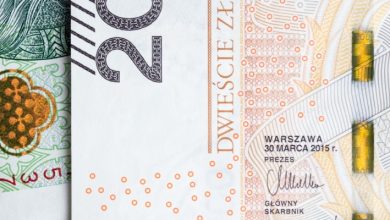The Rise of Decentralized Exchanges in the DeFi Ecosystem

- Understanding the concept of decentralization in the DeFi ecosystem
- The evolution of traditional exchanges to decentralized exchanges
- Key features and benefits of decentralized exchanges
- Challenges and risks associated with decentralized exchanges
- Regulatory concerns and the future of decentralized exchanges
- The role of decentralized exchanges in shaping the future of finance
Understanding the concept of decentralization in the DeFi ecosystem
Decentralization is a key concept in the DeFi ecosystem, where there is a shift away from centralized authorities controlling financial transactions. In decentralized exchanges, or DEXs, users can trade cryptocurrencies directly with each other without the need for intermediaries. This peer-to-peer model allows for greater transparency, security, and control over one’s assets.
By removing the middlemen, decentralized exchanges eliminate the risk of censorship, hacking, or manipulation that can occur on centralized exchanges. Instead, transactions are verified by a network of nodes using smart contracts, ensuring that trades are executed as agreed upon. This trustless system provides users with a level of autonomy and security that is not possible in centralized systems.
Furthermore, decentralization promotes financial inclusion by allowing anyone with an internet connection to participate in the DeFi ecosystem. Users retain ownership of their private keys and funds at all times, reducing the risk of funds being frozen or seized by a third party. This empowerment of individuals to control their own finances is a core principle of DeFi.
The evolution of traditional exchanges to decentralized exchanges
Traditional exchanges have long been the primary means for individuals to buy and sell cryptocurrencies. These centralized platforms have served as intermediaries for transactions, providing liquidity and order matching services. However, with the rise of decentralized finance (DeFi), there has been a shift towards decentralized exchanges (DEXs).
Decentralized exchanges operate on blockchain technology, allowing users to trade directly with one another without the need for a central authority. This eliminates the risk of hacking or fraud often associated with centralized exchanges. Furthermore, DEXs offer greater privacy and security, as users retain control of their funds throughout the trading process.
The evolution from traditional exchanges to decentralized exchanges represents a significant advancement in the cryptocurrency space. While traditional exchanges have been instrumental in facilitating the growth of the market, decentralized exchanges offer a more efficient and secure way to trade digital assets. As DeFi continues to gain traction, we can expect to see a further shift towards decentralized exchanges as the preferred method of trading in the cryptocurrency ecosystem.
Key features and benefits of decentralized exchanges
Decentralized exchanges, or DEXs, have been gaining popularity in the decentralized finance (DeFi) ecosystem due to their key features and benefits that cater to the needs of cryptocurrency traders and investors.
- One of the main advantages of DEXs is the enhanced security they offer. Unlike centralized exchanges, DEXs do not hold users’ funds, reducing the risk of hacks and theft.
- DEXs also provide users with more control over their assets since they can trade directly from their wallets without having to deposit funds onto an exchange.
- Another benefit of decentralized exchanges is the increased privacy they offer. Users do not need to go through KYC/AML procedures to start trading on a DEX, allowing for more anonymity.
- DEXs are also known for their global accessibility, as they are not restricted by geographical boundaries. This means that anyone with an internet connection can access a DEX and start trading.
- Furthermore, decentralized exchanges promote the concept of financial inclusion by allowing users to trade peer-to-peer without the need for intermediaries, making trading more efficient and cost-effective.
In conclusion, the key features and benefits of decentralized exchanges make them an attractive option for cryptocurrency traders looking for a secure, private, and accessible way to trade digital assets within the DeFi ecosystem.
Challenges and risks associated with decentralized exchanges
Decentralized exchanges in the DeFi ecosystem offer many benefits, but they also come with their own set of challenges and risks that users need to be aware of. One of the main challenges is the lack of regulation and oversight compared to centralized exchanges. This can lead to issues such as security vulnerabilities, market manipulation, and scams.
Another risk associated with decentralized exchanges is the potential for smart contract bugs or vulnerabilities. Since these exchanges rely on smart contracts to facilitate trading, any flaws in the code could result in funds being lost or stolen. It is crucial for users to thoroughly research the platforms they are using and understand the risks involved.
Additionally, liquidity can be a major challenge for decentralized exchanges. Without a centralized order book, it can be difficult to match buyers and sellers efficiently, especially for less popular tokens. This can result in higher slippage and lower trading volumes, making it harder to execute trades at favorable prices.
Overall, while decentralized exchanges offer greater privacy, security, and control over funds, users must be cautious and do their due diligence to mitigate the risks involved. By staying informed and taking proper precautions, users can navigate the decentralized exchange landscape safely and effectively.
Regulatory concerns and the future of decentralized exchanges
Regulatory concerns pose a significant challenge to the future of decentralized exchanges in the DeFi ecosystem. As these platforms operate without a central authority, they raise questions about compliance with financial regulations and anti-money laundering laws. Governments around the world are closely monitoring the rise of decentralized exchanges, with some already taking steps to impose restrictions or guidelines on their operation.
One of the main concerns is the anonymity that decentralized exchanges offer to users, making it difficult for regulators to track and monitor transactions for illicit activities. This lack of transparency can attract bad actors looking to exploit the system for money laundering or terrorist financing purposes. As a result, regulators are exploring ways to impose KYC (Know Your Customer) and AML (Anti-Money Laundering) requirements on decentralized exchanges to mitigate these risks.
Furthermore, the cross-border nature of decentralized exchanges adds another layer of complexity for regulators. With transactions occurring across different jurisdictions, it becomes challenging to enforce consistent regulatory measures. This lack of harmonization can create regulatory arbitrage opportunities, where users flock to jurisdictions with lax regulations to avoid scrutiny.
Despite these challenges, proponents of decentralized exchanges argue that they offer greater financial inclusion, lower fees, and increased privacy for users. They believe that with the right balance of regulation, decentralized exchanges can coexist with traditional centralized exchanges and provide a more resilient and censorship-resistant financial infrastructure for the future.
The role of decentralized exchanges in shaping the future of finance
Decentralized exchanges are playing an increasingly important role in shaping the future of finance within the DeFi ecosystem. These exchanges, which operate without a central authority or intermediary, offer users greater control over their funds and transactions. By leveraging blockchain technology, decentralized exchanges facilitate peer-to-peer trading in a secure and transparent manner.
One of the key advantages of decentralized exchanges is their ability to enhance financial inclusivity by providing access to a wider range of assets and investment opportunities. This can help bridge the gap between traditional financial systems and underserved populations, empowering individuals to participate in the global economy.
Moreover, decentralized exchanges offer improved privacy and security compared to centralized exchanges. Users retain ownership of their private keys, reducing the risk of hacks and unauthorized access. Additionally, decentralized exchanges are resistant to censorship and regulatory interference, ensuring that transactions remain immutable and transparent.
As decentralized exchanges continue to evolve and gain traction in the DeFi space, they have the potential to revolutionize the way we think about finance. By democratizing access to financial services and empowering individuals to take control of their assets, decentralized exchanges are paving the way for a more inclusive and transparent financial system.



